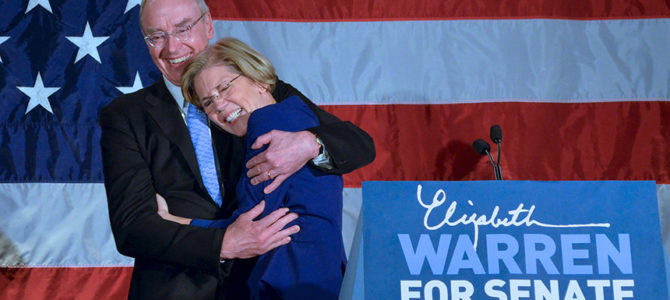Elizabeth Warren was born in Oklahoma City, Oklahoma and received a Bachelor of Science degree in speech pathology and audiology before enrolling in Rutgers Law School. After receiving her J.D. and passing the bar examination, Warren taught law at various universities.
In her first Massachusetts U.S. Senate race in 2012,Warren ran for the Democratic nomination unopposed and went on to defeat incumbent Republican Scott Brown for the seat while encountering opposition from business interests. Warren easily won reelection for a second term before announcing her candidacy for president in 2018.
EQUAL RIGHTS
Senator Warren has introduced a plan labeled, “Valuing the Work of Women of Color,” which states she would enact an executive order that would deny contracting opportunities to companies with poor track records on diversity and equal pay, ban companies that want federal contracts from using forced arbitration and non-compete clauses, and ensure a $15 minimum wage for all workers. Warren also wants to update her agenda based on input and insight from black activists, community leaders, organizers, policy experts and stakeholders, a move that could find support in South Carolina as nearly a third of its population are considered to be people of color per KFF.
Where LGBTQ+ rights are concerned, Warren has indicated that she will strengthen Obama-era non-discrimination protections that were gutted by the Trump administration. Additionally, she plans to increase federal enforcement and investigations into anti-LGBTQ+ discrimination and make it easier to change identification documents to reflect a person’s gender identity.
ECONOMY
Senator Warren plans to consolidate existing government programs that affect job creation into a new agency with the sole responsibility to create and defend quality, sustainable American jobs. In the same plan, she states that she wants to deploy the massive purchasing power of the federal government to create markets for American-made products. Additionally, the Senator supports the growth of a new farm economy, in which the government would guarantee farmers a price at their cost of production.
To do that, the government would offer farmers a non-recourse loan that covers most of their costs of production. Farmers could either repay the loan by selling their products or forfeit the products they used as collateral for the loan at the end of the loan period. If the farmer does not sell their products during that time period, the government would store the products in reserves and allow prices to rise. Her plan ultimately guarantees farmers a fair price at a far lower cost than the current subsidy system.
According to the South Carolina Farm Bureau, South Carolina’s largest economic sector is agribusiness. Elizabeth Warren’s proposals to promote growth in the agricultural industry may cause the state’s rural voters to side with her in the Democratic primary.
CORRUPTION
Elizabeth Warren has proposed a law clarifying Congress’s intent that the Department of Justice can indict the President of the United States and amend obstruction of justice statutes to explicitly allow for indictment when the president abuses the power of the office. In addition, the candidate has suggested her interest in appointing an Attorney General who will protect the rule of law, as well as an Assistant Attorney General in charge of the Office of Legal Counsel who will reverse the entity’s opinion arguing the President cannot be indicted.
Furthermore regarding corruption, Warren’s plan would ban giant defense contractors from hiring senior DOD officials and limit foreign government hiring of American national security officials in order to reduce corporate influence at the Pentagon. Warren, if elected, also seeks to ban private prisons so that companies cease profiting off of cruelty that specifically exploits the poor.
This article is part of a series of profiles of Democratic Presidential candidates leading up to South Carolina’s Democratic primary on February 29th, 2020. This series seeks to reflect on the policies of each candidate that most directly impact the citizens of South Carolina.


